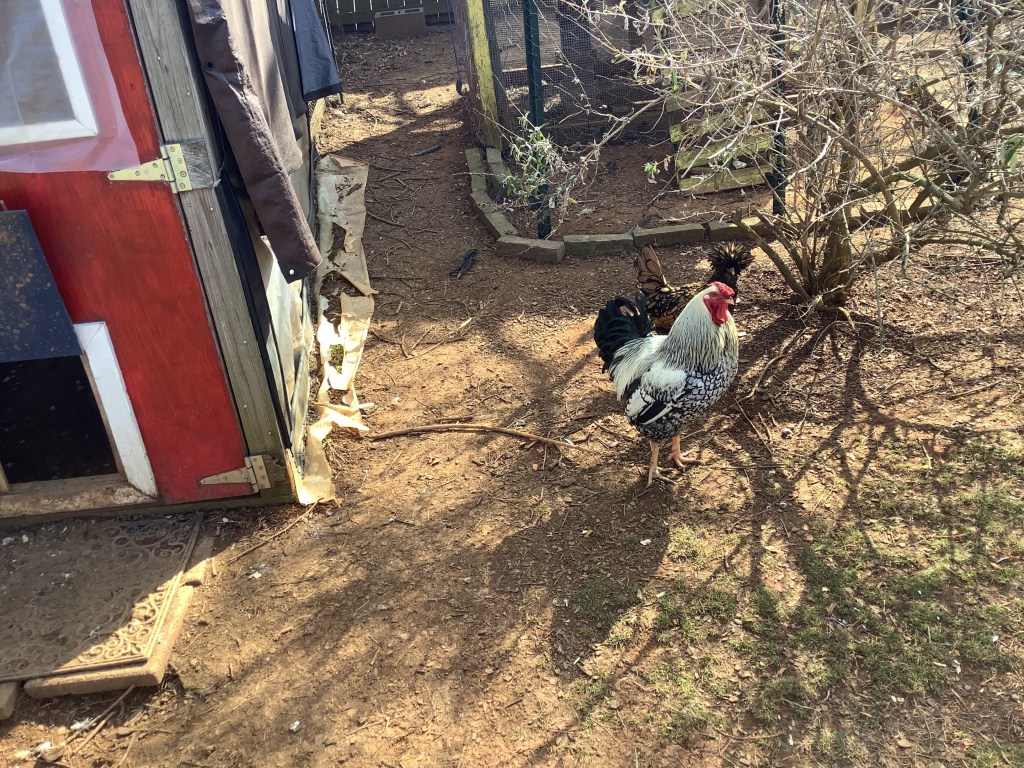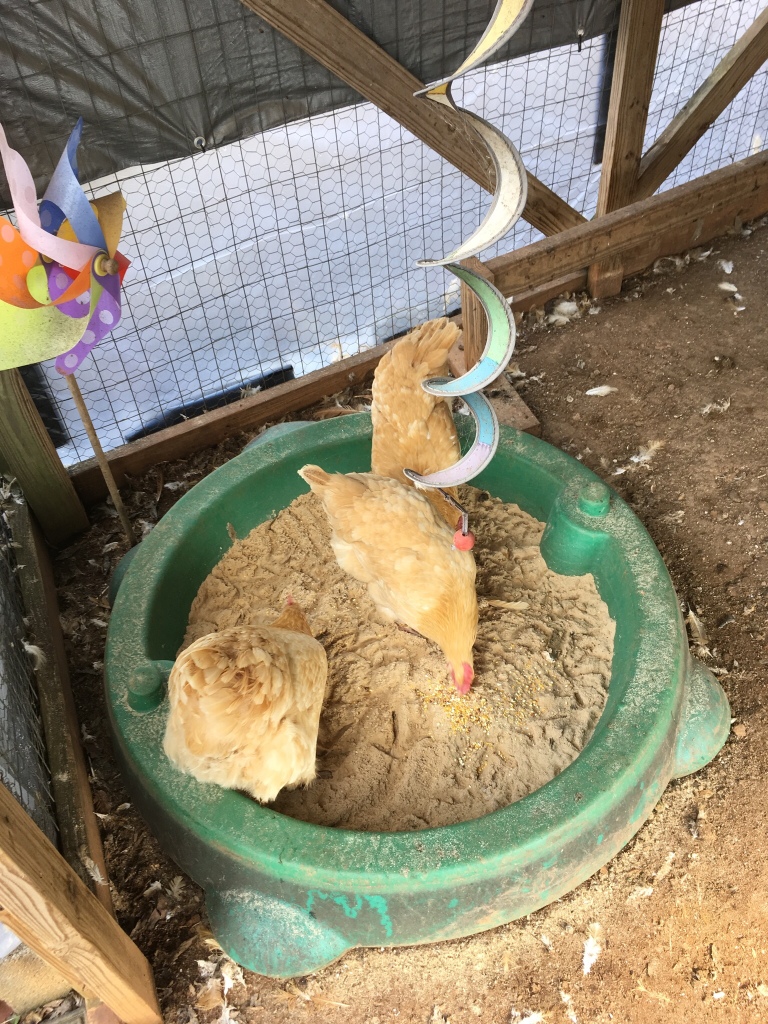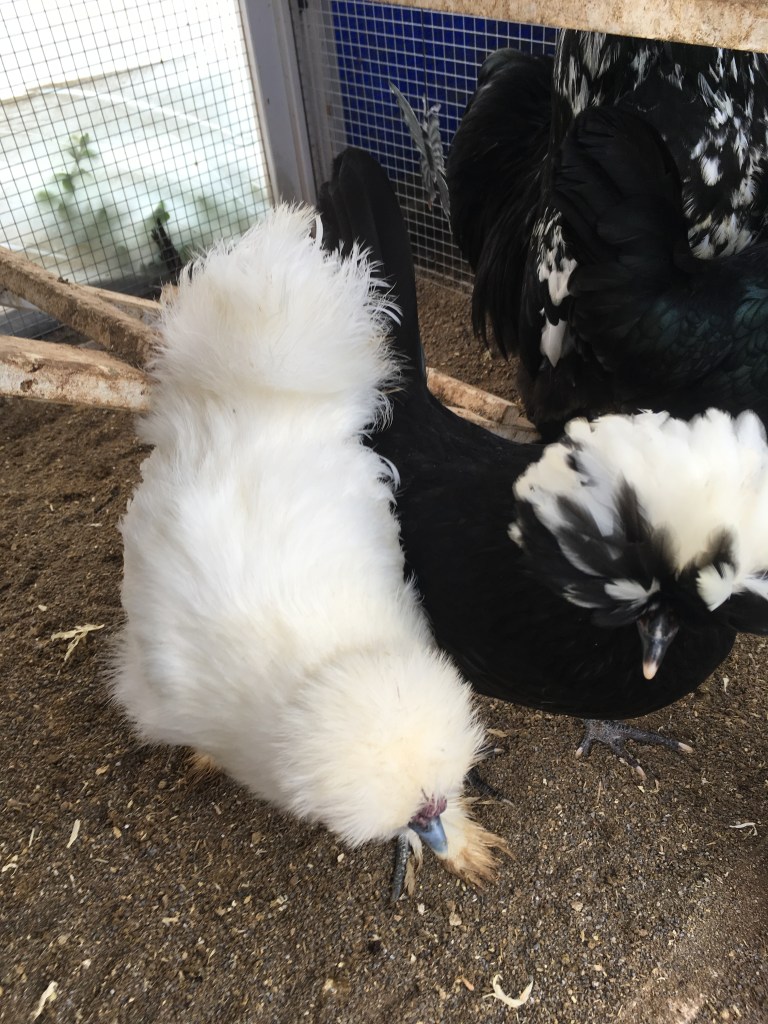Bird Flu: What a Keeper Should Know.

Nothing strikes fear faster in a backyard chicken keeper than the threat of a highly contagious pathogen that could wipe out their entire flock. Bird flu is a concern and for good reason.
Over the past decade, my flock and I have weathered many bird flu watch scenarios together. During a particularly tense scenario, our little farm was two counties away from a large commercial farm that had to euthanize all of its birds. It is a scary thought for a backyard keeper who considers their flock pets or companion animals.
Although the thought of bird flu affecting your flock is scary, I am here to help put a bit of perspective into the equation and arm you with a realistic plan to help protect you and your flock.

To borrow a line from The Hitchhiker’s Guide to The Galaxy, step one: DON’T PANIC!!! I agree with Douglas Adams 100%. Stay calm and always carry a towel.
I will start with detailing to you how I handle a bird flu scare.
Bird flu strains generally originate in Asia. There are several strains of bird flu, like the human flu, and the RNA is constantly changing and mutating. The pathogen then travels to the United States via “air mail” within migratory bird flocks as they migrate from place to place. Waterfowl are the most common vectors, but they can also be carried via songbirds and other wild birds.
When I hear of bird flu outbreaks in Asia, I pay attention, just being aware that a strain has emerged. If it stays in Asia that’s good, if it makes its way out, that’s something to pay attention to.

There are several flyways that waterfowl migratory birds take that can bring the flu into the country. My flock is most affected by the Mississippi and Atlantic Flyways.
Once the virus has been reported in the United States, I pay close attention. I don’t panic, I will still allow my flock to free range and maintain their coops normally.

Once there are reports of bird flu in private farms or commerical farms within two states from my location, I will start my bird flu watch readiness plans.
During this time, I will allow no one to visit my birds or tour my farm, I will stop selling eggs, and I will cancel plans to adopt any new birds for the time being. Bird flu can easily be transmitted by these means, as I am at greater risk of myself being the vector that brings the pathogen to my flock. In the same accord, when I return from the feed store, I will change my clothes before I enter the flock environment. I will also up my biosecurity practices. I always practice good biosecurity, but during a possible flu impact, I will pay special attention to these safeguards.

Once the flu has entered my state, I will put my flock on lockdown. I only reserve this action when the threat becomes imminent. During a lockdown, my entire flock will be confined to their coop and pen. All my coops have covered runs, they will not come into contact with any wild birds, likewise, the wild birds will have no access to the flock. I will then strictly manage who enters these pens and biosecurity practices before entering the backyard and coops.

Once on lockdown, the flock will generally have to stay in this state till the treat passes. Depending on the month (spring vs fall) it could be longer or shorter. In 2016 when bird flu was detected just two counties away, my flock was on lockdown for about a month before it was safe to allow them to free range again.

I have only needed to put my flock on lockdown once, this was the year when the bird flu wreaked havoc in the United States sparking an egg shortage. Our little farm was only two counties away from the commercial farms that were affected. Although tense, I didn’t panic. I worked to the extent of my limits to protect my flock, after that it’s up to fate.

My flock has bird flu. What do I do?
However, if the worst-case scenario does occur and my flock is affected by bird flu, I ready myself for what I call my “Code Red Action Plan.”
If you suspect that your flock has contracted bird flu, a keeper needs to act fast. Bird flu is very easy to identify in a flock. The affected birds will become lifeless, the combs will be purple, and death will occur very fast (24 hours or less; multiple birds may die at once). If you have any birds that exhibit these signs, your flock has bird flu, and as a keeper, you have only hours to react.
Bird flu will not only wipe out your flock in a matter of days, but depending on the strain, those close to the affected birds can become affected. Some Bird flu strains are zoonotic and thus humans can contract it from their birds, although this is rare, it’s worth knowing. The main impact will be the quick depopulation of your birds due to deaths from the virus.
The first thing a keeper should do if they suspect their flock has bird flu is to call the USDA or their State Veterinarian. These numbers can be easily found via Google search. Once you have alerted them to the condition of your flock, an inspector will be dispatched to your farm to test your birds.
If bird flu is positive, you will be contacted by a federal agent to assist you in managing bird flu in your flock. Should a large quantity of your bird be affected or deceased in most cases they will reimburse you for your lost birds.
Some may wonder if you have to report bird flu in your flock. The answer is YES!!! A keeper is legally obligated to report suspected bird flu cases in their flock. Failure to do so is considered a crime and a keeper could be prosecuted, so yes, you have to report your flock’s condition. The good news is, if your birds all perish, most states will reimburse the keeper for their lost birds.

In some states, inspectors may be dispatched to test flocks within a certain distance of a known case. For example, currently in Indiana bird flu has been reported and dramatically affected several commercial farms. Several of my fellow feathered friend keepers were shocked to have an inspector knock on their door to inspect their flocks. In some cases, this will happen, and keepers are stunned to have inspectors show up at their door to inspect birds. All my friends affected had clean bills of health for their flocks which was a huge relief. But yes, depending on the state and the outbreak reported, this can happen.

What I am doing now? Currently, bird flu is within two states in my location. My birds are still free ranging in the backyard while I pay attention to the reports. Right now, I’m relaxed, not putting too much energy or concern into the situation. I have upped my biosecurity measures and am not allowing any visitors to my flock or adopting new birds. Other than that, it’s business as usual.
However, if reports of bird flu are found in my state of Tennessee, I will then pay closer attention. I will concern myself with the proximity and the rate of affection and prepare to put my flock on lockdown. The girls and I have been through this before, I’m sure we’ll do it again.
I respect the pathogen that causes bird flu, but I don’t panic over it. Typically, small backyard flocks are rarely affected but it can happen here and there. Backyard keepers typically take better care of their birds, living conditions are improved, and most backyard flocks have access to sunshine, a natural environment, and green grass as compared to the commercial flock which often suffer catastrophic bird flu repercussions. All of this helps increase your flock’s immunity, but it’s not full proof. So don’t panic, just have a preparation plan in the back of your mind if needed.

This post was intended to put some perspective into a bird flu scare and equip keepers with measures to protect their backyard flocks. I hope that I have achieved this objective. Bird flu is concerning but keepers don’t need to panic.
As always, thanks for reading. If you have any questions, please leave them in the comments or you can e-mail us a kuntryklucker@gmail.com
I am a published author, multi-disciplinary writer, and blog contributor. If you like this blog, please visit some of my other sites.
Knowledge of the Spheres – Exploring the Celestial Spheres!
Coffee and Coelophysis – A blog about Dinosaurs!
Chicken Math University – Adventures in Homeschooling.
If you enjoyed this post, please peck the subscribe button. Till next time, keep on crowing!

~ The Kuntry Klucker Crew ~